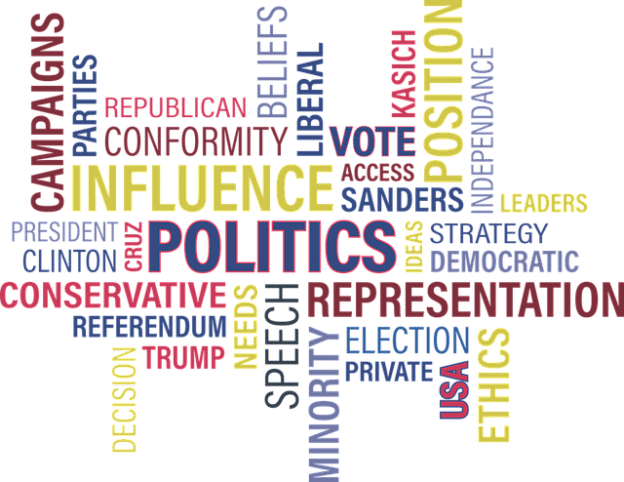It’s election year in the United States, and with the heightened political climate, managing talking politics at work takes on added significance. Employees exchanging diverse perspectives can either contribute positively to the workplace environment or lead to challenges.
Recognizing the impact of these discussions on workplace dynamics is necessary for maintaining a harmonious and productive setting. Today, we look at effective strategies for handling political conversations in the workplace and creating an environment where diverse political perspectives can coexist.
Understanding the Workplace Environment
To effectively manage political conversations in a professional setting, it is essential first to assess the prevailing organizational culture and policies. Understanding how the company views and addresses political discussions sets the foundation for establishing appropriate guidelines. It will also determine how you spend your break; you can debate about current events or enjoy some exciting games together at locations like the Golden Casino.
Leadership’s Direct Influence
Leaders set the soundtrack for political conversations. Their words and actions define the room’s tone, shaping employees’ engagement. To nurture a productive space, they must champion diverse viewpoints, foster respect, and align with the company’s core values.
Recognizing Diversity
Political opinions can be landmines. But instead of tiptoeing around them, celebrate the diverse perspectives that make everyone different. Remember, colleagues hold divergent views, so actively listen, show empathy, and focus on common ground. This way, organizations can build a team where respect is upheld despite political differences.
Setting Ground Rules
For organizations to create a workplace environment conducive to healthy political discourse, it is imperative to establish clear guidelines for engaging in discussions. These guidelines should emphasize the importance of respect and constructiveness. Here are some important principles for everyone to uphold for civil conversations:
Time and Place
To avoid disruptions to workflow and maintain a focused work atmosphere, it is essential to specify that political discussions should be conducted during appropriate breaks or designated times. This establishes clear boundaries, ensuring that work-related activities are not adversely affected by potentially divisive or distracting conversations.
Employees should be encouraged to gauge the appropriateness of engaging in political discourse based on the nature of the workplace activity. For instance, during critical project meetings or tight deadlines looming, individuals need to prioritize work-related discussions over political topics.
This encourages a sense of responsibility among employees to assess the prevailing work context and make informed decisions about the timing of their political conversations.
Moderation in Expression
Encouraging employees to exercise moderation in their expressions is all about creating a space where individuals express their opinions passionately yet with a conscious awareness of the impact of their words.
Passionate expression is welcomed but should not overshadow the primary goal of a healthy exchange of ideas. Overwhelming or dominating discussions with overly intense expressions can create discomfort for others and hinder the free flow of diverse perspectives.
Fact-Based Discussions
Promoting fact-based discussions when talking politics at work is essential for fostering an environment where political conversations are grounded in accuracy. This principle emphasizes the significance of relying on verifiable information from credible sources, ensuring that discussions are informed and contribute positively to the overall discourse.
When forming and articulating their political perspectives, employees should be prompted to seek reliable sources, such as reputable news outlets, scholarly articles, or official statements. This prevents the spread of misinformation within the workplace.
Training and Awareness
Organizing training sessions provides a structured platform for employees to enhance their communication skills, learn conflict-resolution techniques, and develop cultural sensitivity. These sessions may include practical exercises, role-playing scenarios, and discussions to impart practical tools for handling political conversations respectfully.
By focusing on effective communication, employees can better express their opinions while maintaining a collaborative atmosphere. Conflict resolution training equips individuals with strategies to address differences constructively, ensuring disagreements do not escalate into conflicts.
Additionally, cultural sensitivity training promotes an awareness of diverse perspectives, fostering an environment where individuals appreciate and respect each other’s backgrounds.
Consequences for Inappropriate Behavior
How often do people know the rules and still go ahead, engaging in behavior that disrupts the workplace atmosphere during political discussions? Spelling out consequences for inappropriate conduct in these cases is necessary to maintain a respectful workplace.
Inappropriate behavior includes personal attacks, the use of derogatory language, or the spreading of misinformation. Consequences for these actions could range from verbal warnings and counseling to more severe measures such as written warnings, probation, or, in extreme cases, disciplinary actions like suspension or termination. By illustrating these examples and their corresponding consequences, organizations provide clear guidance on the expected standards of behavior.
Ensuring Fairness
Organizations must remember that due process and fair investigations are integral in handling violations. This ensures that individuals accused of inappropriate behavior can present their side of the story and that consequences are proportionate to the severity of the violation.
Additionally, it is imperative to recognize the challenges employees may face during political discussions; organizations should highlight alternative resources or support systems available. These could include:
- confidential reporting mechanisms
- access to HR support
- availability of mediation services
Ensuring that employees encountering issues have avenues for seeking help reinforces the organization’s commitment to creating a safe and supportive environment for all.
While political discussions inherently bring varying perspectives to the forefront, creating an environment where these differences are celebrated rather than frowned upon is crucial. By embracing these guidelines, this election season can be different—an opportunity for constructive dialogue that unites rather than divides the workplace.


